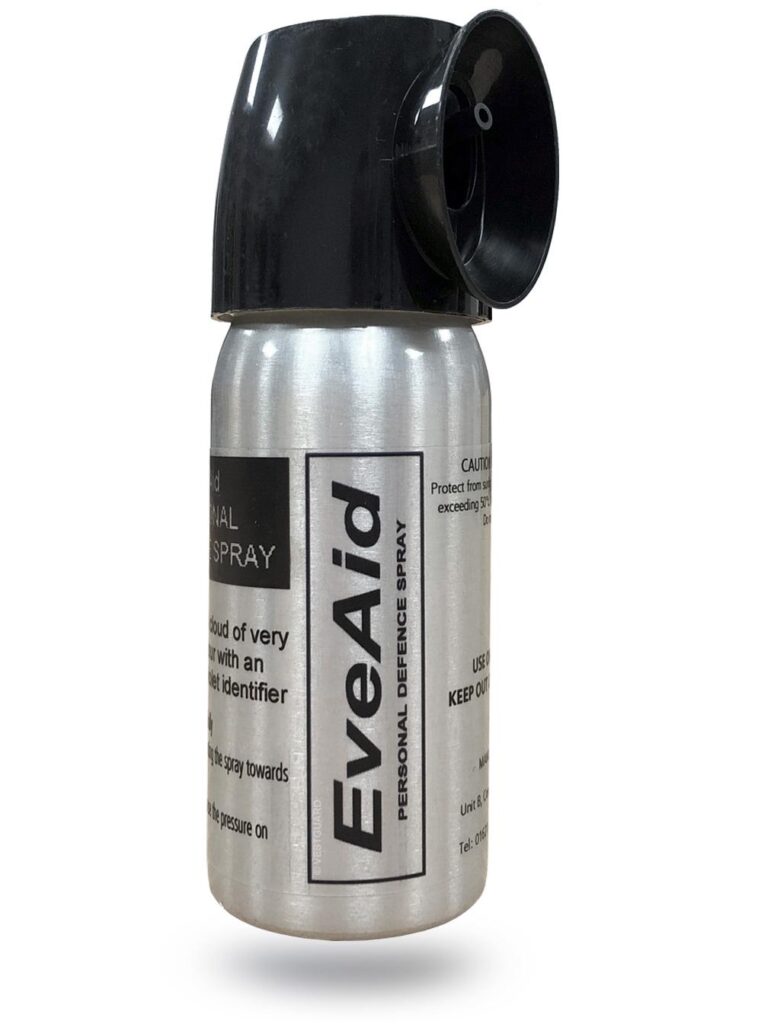Table of Contents
- Understanding the Legal Restrictions Surrounding Pepper Spray in the UK
- Exploring the Consequences of Possession and Use of Pepper Spray
- Comparing UK Pepper Spray Laws with Other Self-Defense Options
- Practical Tips for Staying Compliant and Enhancing Personal Safety
- In Summary
Understanding the Legal Restrictions Surrounding Pepper Spray in the UK
In the United Kingdom, pepper spray is classified under strict legal regulations due to its potential to cause serious harm. Under the Firearms Act 1968, it is designated as a prohibited weapon, making its possession, purchase, or use illegal for civilians. This classification is primarily because pepper spray contains capsaicin, a chemical agent intended to incapacitate by causing severe irritation to the eyes and respiratory system. Unlike some other self-defense items, pepper spray cannot be carried or used by civilians without resulting in criminal penalties, including fines or imprisonment.
It is important for individuals to understand the implications of carrying pepper spray and the alternatives that are legally permissible. The main points to consider include:
- Legal status: Pepper spray is illegal to possess or use without lawful authority.
- Penalties: Violations can lead to criminal charges and confiscation.
- Self-defense alternatives: Items such as personal alarms or legal deterrent sprays designed without incapacitating chemicals may be safer options.
Exploring the Consequences of Possession and Use of Pepper Spray
Possession and use of pepper spray in the UK carry serious legal risks, with law enforcement viewing it as a prohibited weapon. Individuals found in possession may face arrest, prosecution, and potential criminal records, which can impact future employment and travel opportunities. The police have the authority to confiscate pepper spray on the spot, and offenders might be charged under laws related to offensive weapons, leading to hefty fines or imprisonment. It’s crucial to understand these ramifications before considering pepper spray as a self-defense tool.
Potential consequences include:
- Criminal charges for possession or use
- Seizure of the item by law enforcement
- Imprisonment or community service sentences
- Permanent criminal record affecting personal and professional life
Given these strict regulations, exploring legal alternatives such as personal alarms or other non-weapon self-defense measures is advisable for those seeking safety without risking legal trouble.
Comparing UK Pepper Spray Laws with Other Self-Defense Options
While pepper spray remains illegal in the United Kingdom, it’s interesting to explore how this compares with other self-defense tools allowed under UK law. Alternatives such as personal alarms, stun guns (also heavily regulated), and defensive keys are often recommended. Unlike pepper spray, these options generally pose less risk of causing permanent harm, aligning with the UK’s emphasis on minimal force in self-defense scenarios. For example, personal alarms are widely accepted because they alert others and deter attackers without physical confrontation.
Here’s a brief comparison to consider:
- Personal Alarms: Legal and easy to use, designed to draw attention and summon help.
- Stun Guns: Illegal for general public use, categorized as offensive weapons under UK law.
- Defensive Keys (Kubotans): Legal if used appropriately, but possession with intent could lead to legal issues.
- Pepper Spray: Completely illegal due to its classification as a prohibited firearm.
Ultimately, UK law favors non-lethal, non-aggressive means of protection, which significantly differentiates it from some countries where pepper spray is a common legal defense tool. This regulatory environment encourages citizens to focus on prevention and awareness rather than relying on potentially harmful substances or devices for personal safety.
Practical Tips for Staying Compliant and Enhancing Personal Safety
When considering self-defense options, understanding the legal landscape is paramount. In the UK, pepper spray is classified as a Section 5 weapon under the Firearms Act 1968, rendering its possession and use illegal for civilians. To stay on the right side of the law while prioritizing your personal safety, consider alternatives such as personal alarms, which are legal and effective in drawing attention during emergencies. Additionally, always stay informed about local regulations as laws can sometimes vary or be updated, ensuring you avoid unintended legal consequences.
Practical advice for enhancing your safety without legal risks includes:
- Registering with neighborhood watch programs to boost community vigilance.
- Taking self-defense classes to build confidence and skills without relying on weapons.
- Carrying legal personal safety devices like whistles or tactical flashlights.
- Keeping mobile phones readily accessible to quickly contact authorities if needed.
By focusing on these legal and proactive measures, you can strengthen your personal security while fully complying with UK law, avoiding the serious penalties associated with illegal weapon possession.
In Summary
In summary, navigating the legal landscape surrounding pepper spray in the United Kingdom requires a clear understanding of existing laws and regulations. While pepper spray is widely recognized as an effective self-defense tool in many countries, in the UK it remains classified as a prohibited firearm accessory, making possession and use illegal for civilians. Staying informed about these legal boundaries is essential to avoid serious consequences, and to explore alternative, lawful methods of personal safety. By knowing the rules and respecting them, individuals can protect themselves responsibly and contribute to a safer community for all.Check Our Other Blogs
- StunGun – Your Trusted Source for Stun Guns, Laws, and Self-Defense Tips
- PepperSprayLaws – Your Trusted Resource for Pepper Spray Information
- StunGunLaws – Your Trusted Guide to Stun Gun Legality and Safety




